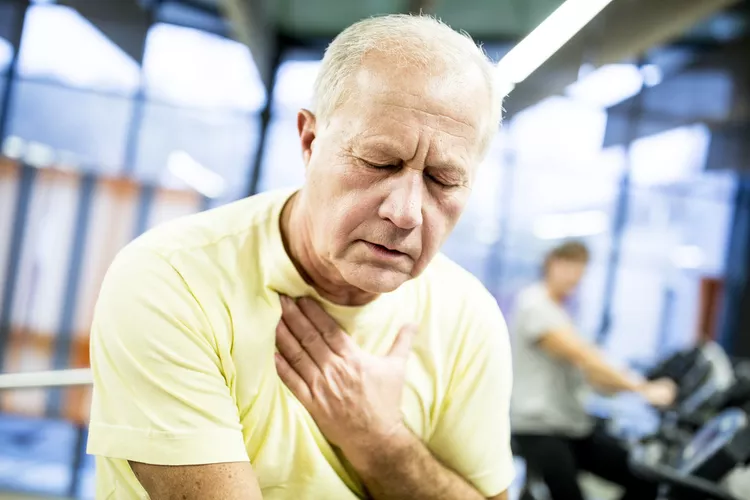High Cholesterol & Stroke Risk: Lower Your Levels, Lower Your Risk
Share IT

Launch Your Dream Website with Us!
Click Here to Get in touch with Us.
Categories
High Cholesterol and Stroke Prevention
Elevated Cholesterol: A Quiet Danger Stealing Into Your Bloodstream and Raising Your Chance of Stroke
A stroke damages brain cells by obstructing blood flow to the brain, which is one of the main causes of mortality and disability globally. Hyperlipidemia, also known as high cholesterol, is a major risk factor for stroke. This blog post delves into the risks associated with high cholesterol, looks at how it raises the chance of stroke, and gives you the tools you need to take charge of your cholesterol health.
Thank you for reading this post, don't forget to subscribe!Table of Contents

Knowing Your Cholesterol:
High Cholesterol and Stroke Prevention
Your liver produces cholesterol, a waxy chemical that can be present in some foods. Although excessive amounts might be harmful to health, it is essential for the development of healthy cells. Cholesterol comes in two primary varieties:
- Low-Density Lipoprotein (LDL) Cholesterol: Often referred to as “bad” cholesterol, LDL cholesterol can accumulate and cause plaque to form in the artery walls. Atherosclerosis is the term for the narrowing of the arteries caused by this plaque.
- High-Density Lipoprotein (HDL) Cholesterol: The “good” cholesterol known as high-density lipoprotein (HDL) assists in removing low-density lipoprotein (LDL) from your arteries and returning it to the liver for breakdown.
Hyperlipidemia: Elevated Cholesterol:
High Cholesterol and Stroke Prevention
A lipid profile that is abnormal in your blood is called hyperlipidemia. This may include elevated levels of triglycerides, another form of fat, or low HDL or high LDL cholesterol. Unchecked elevated cholesterol poses a serious danger for a number of illnesses, including stroke.
How Stroke Risk Is Increased by High Cholesterol:
High Cholesterol and Stroke Prevention
Numerous factors, including elevated LDL cholesterol, increase the risk of stroke:
- Atherosclerosis: As was previously indicated, LDL cholesterol can clog arteries with plaque. The brain’s blood vessels become narrower as a result of this plaque accumulation. An ischemic stroke may result from a total obstruction.
- Blood Clot Formation: Arterial plaque has a tendency to become unstable and burst. This may cause a blood clot to form. A stroke can result from these clots travelling to the brain and obstructing blood flow.
- Inflammation: High cholesterol raises the risk of stroke by causing further damage to the inner lining of blood vessels through inflammation.
The Perils of Silent Elevations in Cholesterol:
High Cholesterol and Stroke Prevention
Because high cholesterol frequently exhibits no symptoms, it is known as the “silent killer.” Delays in diagnosis and treatment can exacerbate the risk of stroke by allowing plaque accumulation to worsen.
Controlling High Cholesterol and Lowering the Risk of Stroke:
High Cholesterol and Stroke Prevention
The good news is that with a variety of lifestyle modifications and, if needed, medicines, you can dramatically lower your risk of stroke and improve your cholesterol profile. The following are some crucial tactics:
- Eat a Healthful Diet: It’s important to eat a diet low in cholesterol, added sugars, and saturated and trans fats. Give priority to whole grains, fruits, vegetables, and lean protein sources.
- Sustain a Healthy Weight: Lowering body fat percentage and keeping a healthy body mass index (BMI) can lower blood pressure and lower the risk of stroke.
- Exercise Regularly: Exercise improves overall cardiovascular health by raising HDL cholesterol and lowering LDL cholesterol. Try to get in at least 150 minutes a week of moderate-to-intense activity.
- Limit Alcohol Consumption: Drinking too much alcohol can elevate blood pressure and LDL cholesterol levels, which further raises the risk of stroke.
- Quitting Smoking: Smoking raises cholesterol levels and seriously destroys blood vessels. One of the most crucial things you can do for your heart and brain health is to stop smoking.
Early Recognition and Intervention:
High Cholesterol and Stroke Prevention
Frequent blood tests to check cholesterol levels are essential for hyperlipidemia early diagnosis and treatment. Based on an evaluation of your cholesterol profile and risk factors, your physician will suggest a course of medication. Medication to decrease cholesterol levels and lifestyle modifications may be part of this regimen.
In summary:
High Cholesterol and Stroke Prevention
Elevated cholesterol levels pose a significant risk for stroke. You may take charge and make cholesterol management a priority by realising the effects that elevated cholesterol has on your health. You may dramatically lower your risk of stroke and improve your cardiovascular health by making dietary and activity adjustments as well as maybe taking medication. Discuss your cholesterol levels with your physician, and together you will develop a customised strategy for controlling your cholesterol and safeguarding your mental well-being.

Launch Your Dream Website with Us!
Click Here to Get in touch with Us.





























































Recent Comments